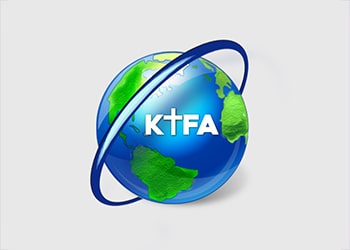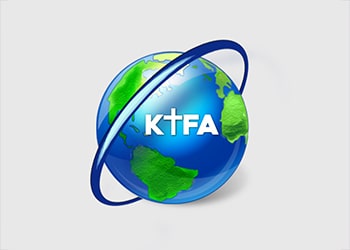KTFA:
Clare: Al-Sudani meets in New York with NATO Secretary-General Jens Stoltenberg statement
The Prime Minister, Mr. Muhammad Shiaa Al-Sudani, met in New York, this evening, Wednesday (Baghdad time), the Secretary-General of the North Atlantic Treaty Organization (NATO), Mr. Jens Stoltenberg, on the sidelines of his participation in the 78th session of the work of the United Nations General Assembly.
The Prime Minister extended an invitation to Mr. Stoltenberg to visit Iraq, based on his desire, praising the support provided by NATO during the war on ISIS, whether through direct participation in military operations, or in providing advice and training to the Iraqi security forces, which was reflected in the stability that The country is experiencing today.
His Excellency stressed the importance of cooperation in the field of exchanging information and tracking the sources of financing terrorism, whose networks spread throughout all countries of the world, in addition to the challenges related to drug trade and smuggling.
Mr. Al-Sudani stated that the government is in the process of reviewing the form of the relationship with the international coalition in light of the readiness of the Iraqi security forces, which resulted in the formation of a bilateral committee, the holding of multiple dialogues, and the visit of a delegation from the Ministry of Defense to Washington to follow up on this matter and discuss the development and training of the Iraqi forces.
For his part, Mr. Stoltenberg expressed his thanks to the Prime Minister; In appreciation of the Iraqi government’s steps towards reform, and the role played by the Iraqi government and people, through its security forces, in defeating the terrorist organization ISIS and repelling the danger, not only from Iraq but also from the people of the NATO countries, stressing respect for Iraq’s sovereignty, and expanding cooperation in providing advice and training to the Iraqi security forces. To include the formations of the Ministry of Interior. •••••
Prime Minister’s Media Office September 20, 2023 LINK
************
Clare: Conflicting expectations for dollar prices…and talk of a “big shock”
9/20/2023
The visit of the Iraqi Prime Minister, Muhammad Shiaa Al-Sudani, to the United States of America is important in terms of its timing, which coincides with the crisis of the rise in the dollar exchange rate, amid high hopes that Iraqis have for the possibility of finding solutions to this issue.
Al-Sudani left for New York to participate in the meetings of the United Nations General Assembly, at its seventy-eighth session, and met on the sidelines of his participation in the meetings with US Secretary of State Anthony Blinken, who was issued an official invitation by US President Joe Biden to visit the White House.
This comes at a time when the dollar exchange rates in Iraqi local markets are witnessing unstable jumps until they approached 160 thousand dinars per 100 dollars, for internal and external reasons, as attributed by specialists.
In this context, a member of the Iraqi House of Representatives, Firas Al-Muslimaoui, says, “The House of Representatives hosted the Governor of the Central Bank following the rise in the dollar exchange rate, and he explained that the reasons for the rise are due to internal and external factors.”
Internal factors
Al-Muslimaoui explained to Shafaq News Agency, “Internal factors include those related to merchants escaping taxes and purchasing dollars from the black market, and among them are administrative obstacles, some of which require those who take dollars to register a company.”
He added, “The Central Bank sought to address these obstacles, and decided to allow individuals, not companies, to buy dollars if they supply goods, provided that they are committed to ensuring that the goods are of the country’s need, real, and have official receipts.”
The third factor, according to Al-Muslimaoui, is that “the Central Bank submitted a proposal to the Prime Minister to reconsider the tax rate imposed on existing goods and reduce it, to encourage the merchant to buy through official methods.”
He continues, “The fourth factor is smuggling. There is security work and large gangs have been arrested for smuggling dollars out of Iraq.”
External factors
The representative points out that “external factors are related to the US Treasury policy, and these are outside the management of the Central Bank, so it is expected that the dollar exchange rate will be one of the issues that the Prime Minister will discuss in his current visit.”
At the conclusion of his speech, Al-Muslimaoui expected that “the dollar exchange rate will witness a gradual decline over the next few days, in a way that does not affect the Iraqi market.”
Continuous rise
On the other hand, the researcher in financial affairs, Ahmed Fouad Shukri, believes that “the dollar will continue to rise due to the government not taking real measures to curb its rise, but rather was content with some preventive or precautionary measures.”
Shukri explained to Shafaq News Agency, “The government banned dealing in the dollar within the local market, and it succeeded to a certain extent, but a large percentage of Iraq’s imports come from neighboring countries that are subject to American sanctions, such as Syria and a number of Turkish and Iranian companies that are completely banned from dealing in the dollar, and they did not The government has so far established a specific mechanism for trade exchange with these countries, and for the purchase and payment processes.”
He points out that “there are other factors that the government did not pay attention to, including the country’s high budget, which leads to fears and bad and negative expectations, high inflation, and Iraq’s foreign debts. These are all factors that contribute to the decline of the currency locally against foreign currencies in general, and since Iraq is linked to… In dollars, this rise will certainly happen.”
He continues, “In addition to the main and largest reason, which is the American sanctions that led to the rise of the dollar in the recent period, there are sanctions that may be more severe and may affect the Central Bank of Iraq, through which a major shock could be exposed, and also with regard to financial transfers that have become confined to the hands of the American Federal Reserve, which “The risks to the Iraqi government have increased significantly.” LINK





